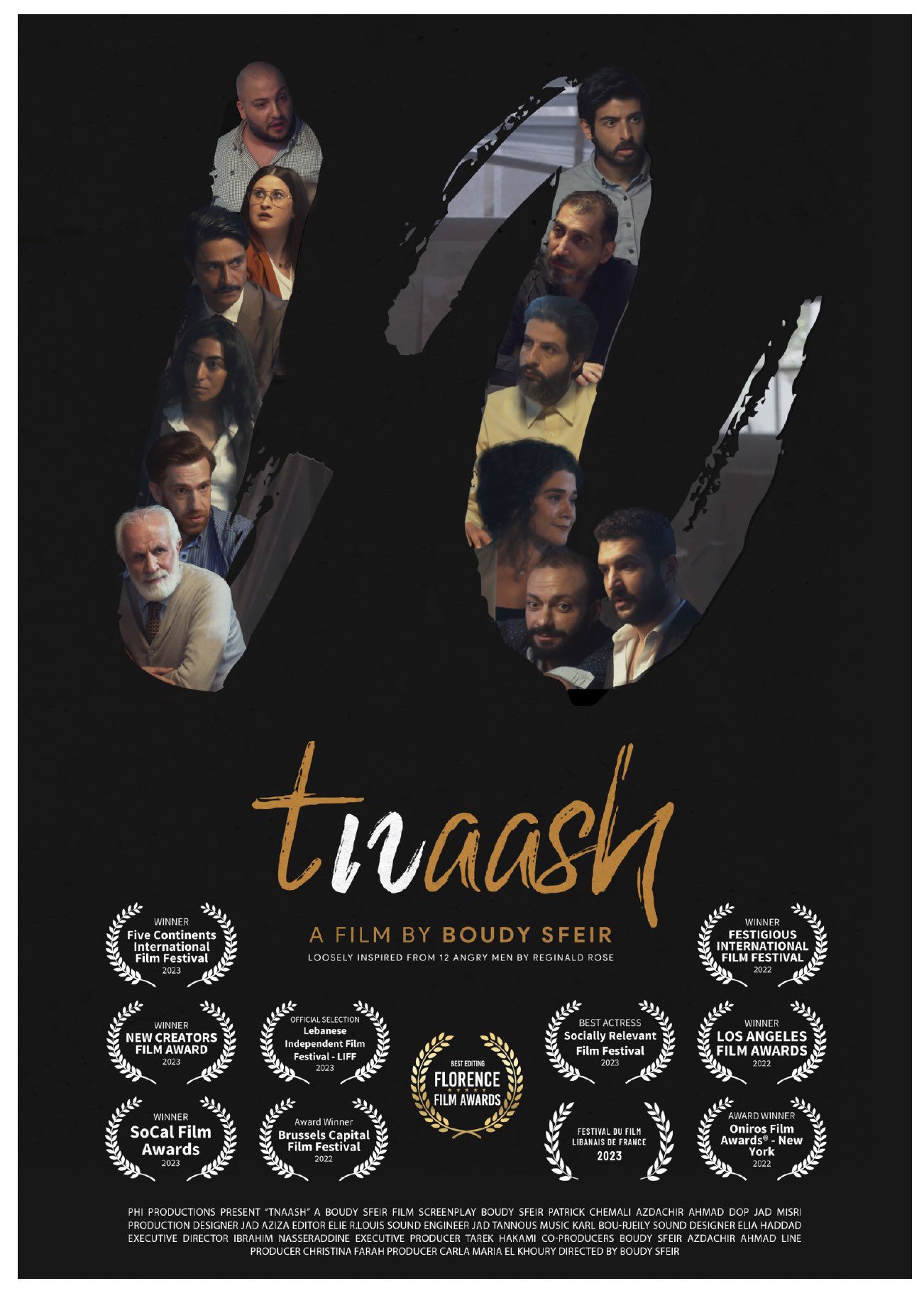

Logline: The destiny of a young refugee falls in the hands of twelve jury members.
Synopsis: Social activist Salma Hadid is murdered and an eighteen-year old Syrian refugee is accused for being the killer. Two witnesses claimed that they had seen the guy escaping the crime scene.
Death penalty is reimplemented in Lebanon, and it’s the first time when a jury of twelve ordinary men and women are said to decide the final verdict. The jury is gathered in a depressing room inside an abandoned building to discuss whether the Syrian guy, who lives in a refugee camp, is guilty or not. However, something unexpected takes place. One of the jurors votes that the guy is innocent so that he shocks all the others who insist that the guy did commit the crime, especially that they are all in a hurry to leave this dilapidated place.
Will he be able to convince them through vivid evidence? Or will the defendant end up hanged?
Director’s Statement: I have always been thinking what would a group of Lebanese people, from different sectarian and political backgrounds, do when they are stuck in a situation where they have to take a unified decision. Would they be objective even for once? As per this personal question, we came up with a script that fictionally tells about an imaginary judicial reform that took place just after the 4th of August traumatic incident (The port’s blast). Hence, a jury of ordinary men and women have to decide whether an accused Syrian refugee is guilty or not. The location was meticulously chosen to be symbolic. It’s a room inside the national electricity company, and the production design has portrayed a mood which resembles the miserable situation in Lebanon. Lighting and camera movement convey symbolic realism. We have let the camera create a feeling as if someone is voyeuring, and simultaneously interacting with the action by using the snap zoom technique. The camera follows the actors as if they are the controllers of the camera. However, the movement stops at certain moments and lets the actor/s express (es) freely. The fast-rate editing vitally serves the suspenseful conversations and spontaneous reactions among the characters. Music and sound effects play a substantial role in adding realism to the motion picture. For instance, the sound of the street and that of the military aviation is actually a reflection of a country that is open to all kinds of transgression. This film highlights HOPE though the people of Lebanon are responsible, in a way or another, for the mess that their country is in. They should realize their fault. The Arab poet Nizar Kabbani says: “Now we’ve just realized what our hands have commited!” Maybe we still have a chance. Maybe we still have hope.
